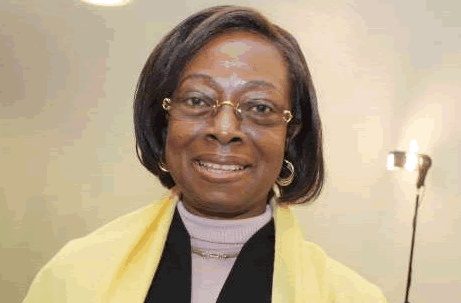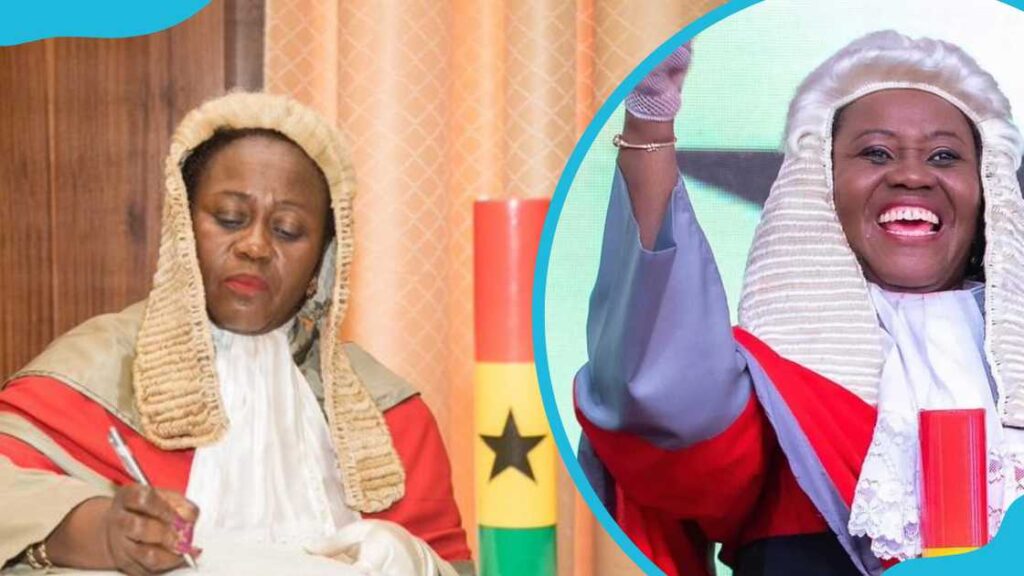When former Chief Justice Sophia Akuffo, now a member of Ghana’s Council of State, publicly called for constitutional reforms regarding the removal of a Chief Justice, she might have thought she was making a principled case for judicial fairness.
But in a strongly-worded opinion, former Special Prosecutor Martin Amidu challenges the propriety and motives behind her remarks.
In his view, her actions not only breach her oath as a Council of State member but also threaten the integrity of ongoing constitutional processes. Here’s a breakdown of the key arguments Martin Amidu makes in his fiery critique:
1. Public criticism by a council of state member undermines ongoing investigations
Amidu argues that Ms. Akuffo’s public statements, while a member of the Council of State, amount to tacit interference in a constitutionally mandated process that is still ongoing. Her comments on the fairness of Article 146 procedures appear to influence or preempt the outcome of a committee set up to investigate petitions against the current Chief Justice.

2. Speaking publicly violates council of state confidentiality and impartiality
According to Amidu, Council of State members are expected to maintain confidentiality and impartiality—especially when consulted in camera by the President. Ms. Akuffo’s public intervention violates that principle and raises ethical and moral concerns about her role in the ongoing process.
3. Suspicious timing suggests an attempt to justify her abstention
He suggests that the timing of her comments—shortly after reports that she abstained from the Council’s vote on the Chief Justice’s suspension—could be seen as a defensive public explanation to justify her abstention, possibly in response to media and political pressure.
4. Calls for reform seem selective and self-serving
Amidu questions why Ms. Akuffo is only advocating reforms for Chief Justices and not for all Superior Court judges. He connects this to her past decisions, including how she handled removal petitions against EC Chair Charlotte Osei and her deputies, without calling for appeal rights then.
5. history of familial and political ties raise conflict of interest concerns
The opinion piece notes that Ms. Akuffo was appointed by her cousin, former President Nana Akufo-Addo. Amidu believes this connection may have influenced her views—especially since the current Chief Justice is also an Akufo-Addo appointee—hinting at potential bias or a personal stake in the matter.
6. Double standards in handling of petitions under former and current presidents
Amidu recalls that a petition for Ms. Akuffo’s own removal as Chief Justice was ignored by then-President Akufo-Addo. He contrasts this with the current President’s adherence to the Constitution in the present case, implying hypocrisy in Ms. Akuffo’s critique of the current process.

7. Public commentary jeopardizes integrity of the inquiry committee
Amidu warns that her comments could damage public trust in the impartiality and independence of the inquiry committee. By questioning the fairness of the process, she may have inadvertently undermined the very system she once upheld as Chief Justice.
8. Article 146 is rooted in legal and historical wisdom
The author defends Article 146, pointing out that its structure is the result of decades of legal evolution, starting from the 1969 and 1979 Constitutions to the current 1992 Constitution. The procedures were carefully designed to protect judicial integrity and ensure fairness—particularly by holding such hearings in camera.
9. Calls for public hearings contradict foundational principles of judicial protection
Citing the 1978 Constitutional Committee and the Consultative Assembly debates of 1991, Amidu argues that the decision to hold removal hearings in private was intentional and rooted in the need to protect the judiciary from public ridicule and politicization. Ms. Akuffo’s advocacy for more open hearings flies in the face of this established rationale.

